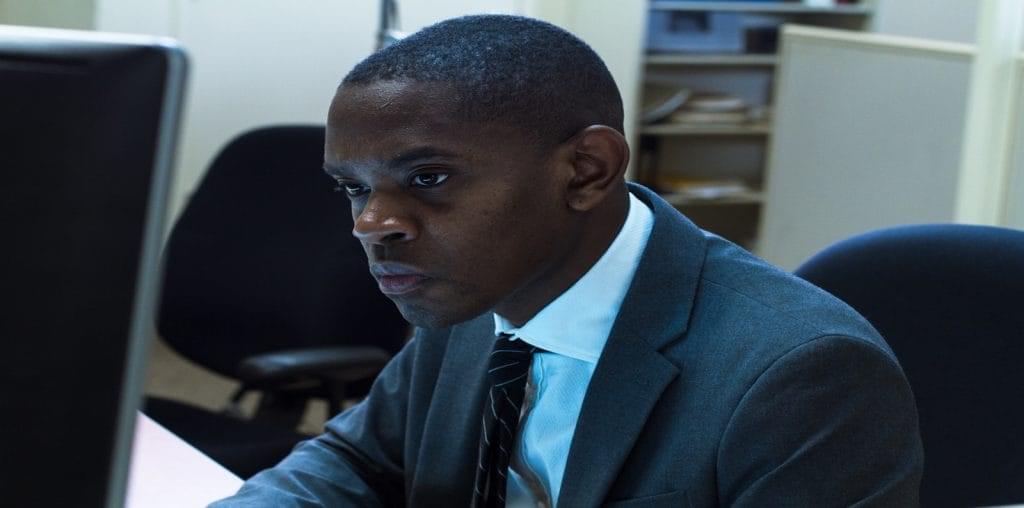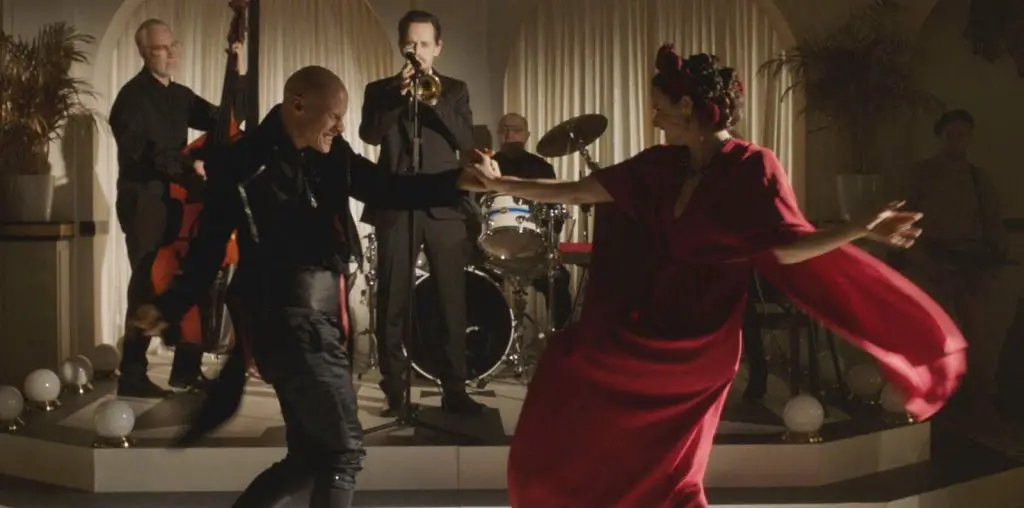
“Lifers” sidesteps the statistics and the blanket media analysis of life without parole sentences by going into not only why these crimes were committed, but who these prisoners are now as people. Mark Farnham did not do right by shooting Wyoming highway patrolman Steve Watt numerous times, causing the loss of his left eye. Ashanti Witherspoon’s murder of a hateful bartender also wasn’t the right way to go. We know that just by hearing about these crimes. Other questions are put forth by filmmaker Mark Mederson. What are they currently doing? Are they in a just prison system? Is it right for the taxpayers to be taking on the burden of these prisoners, the money that goes into giving them all kinds of care?
More than just those questions, “Lifers” is also about forgiveness. From the way our society has been conditioned, it sounds crazy to go out of our way to forgive someone for a heinous crime and that’s true. After all, you don’t lightly forgive Charles Manson for his psychotic rampage. But patrolman Watt, after five years of hatred that affected him and his family, found it necessary to head out to the Wyoming State Penitentiary and connect with his assailant, finding some peace in that act. Sound familiar? The Pope did the same thing with his assassin though for Watt, it evolved into a lifelong friendship.
The prisoners interviewed are remorseful of the crimes they committed, and that leads to the theme of this important documentary: a desire to do some kind of good, even if it’s within the walls of the Louisiana State Penitentiary in Angola. Warden Burl Cain laments how crowded his prison is. It’s full up, with 5,108 prisoners and 4,700 of them are in for life. In Louisiana, life means life. There’s no way around it unless circumstances like Witherspoon’s say otherwise. For Witherspoon, a 1997 documentary led to many seeking commutation of his sentence and he received it, freed after serving 27 years. Having grown older, wiser, and farther away from who he was all those decades ago, he takes his time in the years of his life to warn people off of decisions that may lead them toward the prison system, children especially. The same goes for Douglas Dennis and a fellow inmate who address a group of middle school students at Angola about staying away from where they have ended up.
This is the first documentary I know of to take such a stand like this, covering absolutely all sides of these people. The warden of Angola is a good man, but it depends on the state and the prison because one interviewee notes that if you keep these people in a warehouse with no kind of care, no way to spend their time, and nothing to give them hope, you’re going to wind up with a bunch of animals. I believe it is the warden who says it better early on, in that there should be ways for prisoners to learn some kind of craft or make something of their lives that give them some kind of daily appreciation. Because if a day comes, though rare in Louisiana, where their sentence is reduced or commuted, then they become the taxpayer as opposed to being a burden on the taxpayers. They are a contributing member of society.
There’s a few somber moments with Eugene Redwine, an Angola inmate, which fully seals the power of this documentary. Even with all the hope that can be mustered, all the learning that can be done, and all the forgiveness that can be shared, there is still death in a prison and Eugene’s job is to make the coffins that will encase that death. He was motivated by the cheap pasteboard coffins first used to bury prisoners in the cemetery near the prison. He’s now in that ground, but with him, as with some of the others in here, there’s hardened wisdom from years spent here, wisdom that reverberates through the soul.
“Lifers” shows why the documentary genre still keeps going strong. There are some things our own corporate media will not show, or else they’ll brush off with a few numbers. This puts faces to those in the news. While it’s only one state, Louisiana, it’s an at times wrenching journey that does something just as important as showing us these people. It asks us to look into ourselves and think about our stance on this. Maybe some opinions will change, maybe some will stay the same after seeing this. This isn’t a passive documentary and it’s all the better for that reason.

